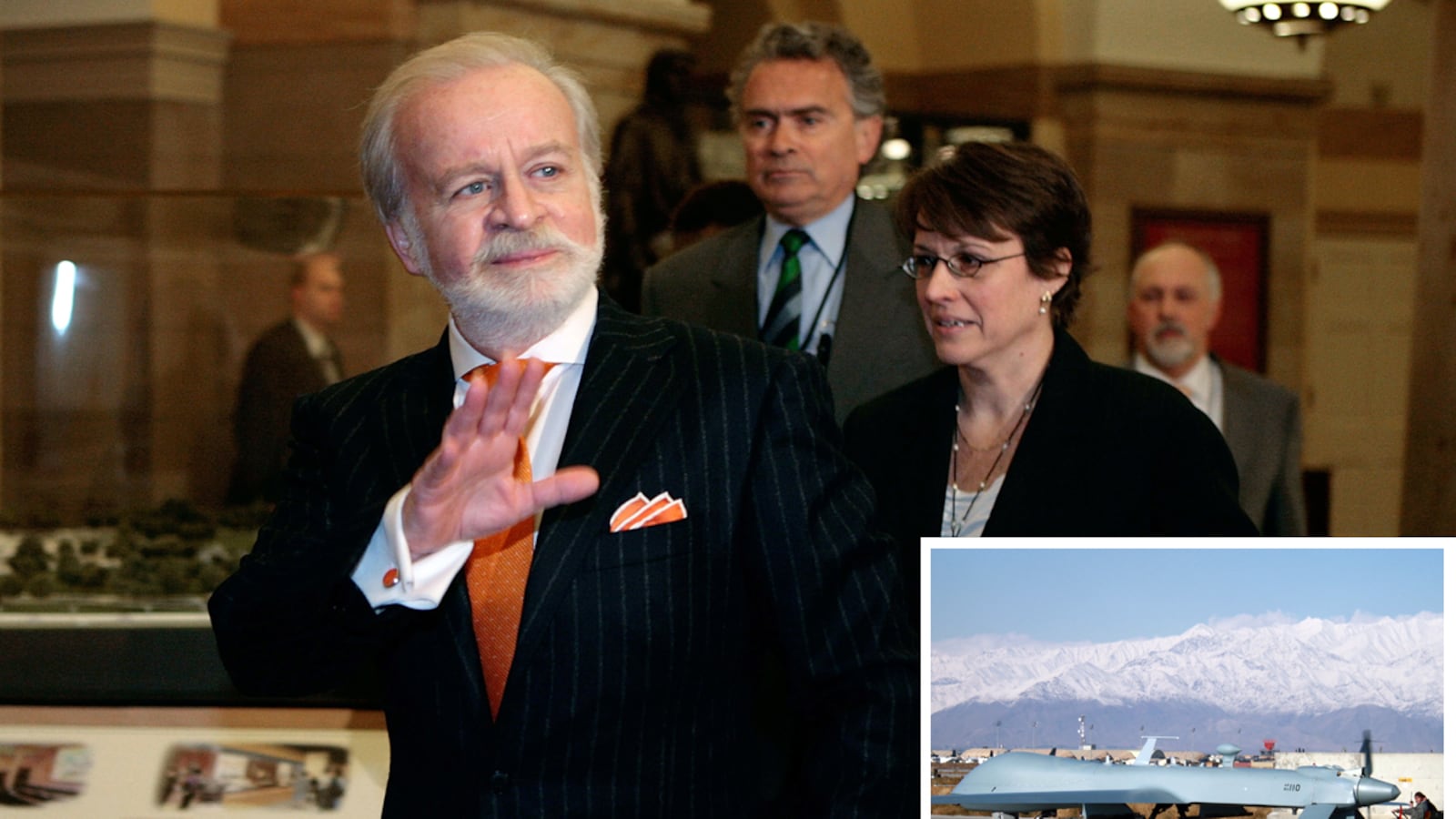The Department of Justice is investigating the unauthorized disclosure of key details of the CIA’s secret drone program from a February Newsweek story crafted from an interview with John Rizzo, the CIA’s former general counsel.
News of the probe, first reported by the National Journal, was confirmed Thursday to The Daily Beast by two U.S. officials who asked not to be named. These officials say the CIA submitted what is known as a crime report after the publication of the Newsweek story to the Justice Department, noting that classified information was disclosed in the article.
Rizzo, who declined to comment for the story, told Newsweek at the time that the lawyers for the CIA’s counterterrorism center chose human targets that comprised a hit list for the agency’s program that operates the Predator unmanned aerial vehicles in Pakistan. Even though the former CIA director Leon Panetta and Sen. Dianne Feinstein, the chair of the Senate Permanent Select Committee on Intelligence, have discussed the drone program in public in the past, it is considered a covert-action program and subject to the highest levels of secrecy.
“It’s still considered a covert-action program, they had no choice other than to file a crime report,” a retired senior CIA officer told The Beast Thursday.
This official added, however, that these crime reports are filed “fairly routinely,” and “most of them come to nothing.” But he added, “Given the level of detail in that article, they did not have much of a choice than to file a report and see what comes of it. I would hope it does not reach the level of going to trial.”
The Justice Department declined to comment for this story.

Even though it is routine for the CIA to file these crime reports to the Justice Department, the Rizzo case is nonetheless unusual. When Rizzo was the general counsel to the CIA, his office was responsible for referring such leak cases to the Justice Department. The case is also unusual because in this instance Rizzo’s quotes were attributed to him by name. Most leak investigations focus on finding the leaker.
“Almost always in these investigations, you start with the publication of a newspaper article, but you almost never know who the source of that information is,” said Steven Pomerantz, a former senior FBI officer who oversaw leak investigations when he was chief of the bureau’s counterterrorism division. “You always start with knowing one of the perpetrators, the newsman who has his byline on the piece. But the government employee is almost never known because he almost always is a confidential source.”
Pomerantz acknowledged that actual leak prosecutions are rare. “I would say let’s look at the reporter, let’s interview him, look at his phone records, and the Justice Department would say, ‘What are you crazy?, We don’t do that kind of thing to journalists,’” he said. “By the realities of life the case never goes anywhere, but this case is different because Rizzo is on the record.”
Steve Aftergood, the director of the project on government secrecy at the Federation of American Scientists, said this particular case involves a clash of civic values. On the one hand, Aftergood said, “There is no reason to think national security was damaged by Rizzo’s remarks and there is every reason to think they contributed to a better public understanding of government affairs.”
But, he added, “On the other hand this administration has taken a very hard line against unauthorized disclosures. If they are going to give to higher-level officials a pass, then the justice system is unfair and even corrupt.”
Under President Obama, the Justice Department has pursued more leak investigations against government officials than any of its recent predecessors. Since Obama took office, the Justice Department has prosecuted Thomas Drake, a National Security Agency official who was alleged to have leaked stories about corrupt programs to the Baltimore Sun, and Shamai Leibowitz, an FBI linguist who leaked intercepted transcripts to a Seattle-based blogger.





